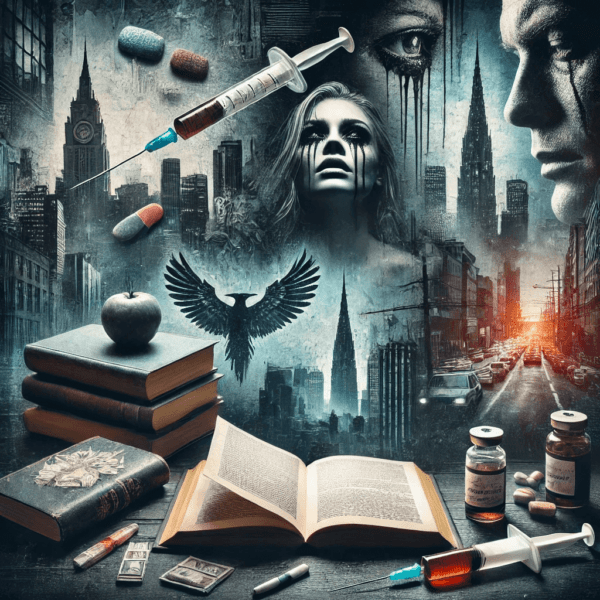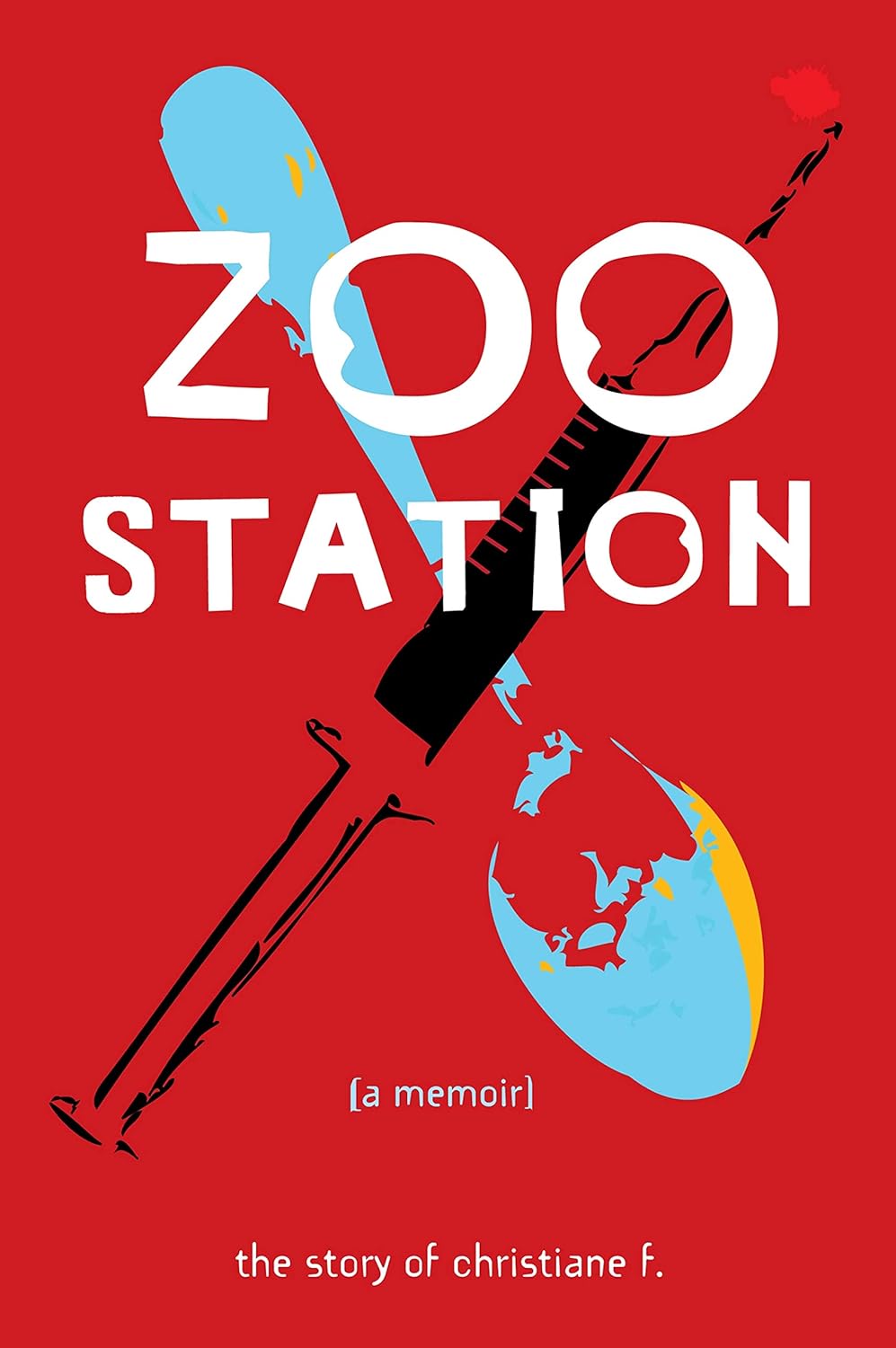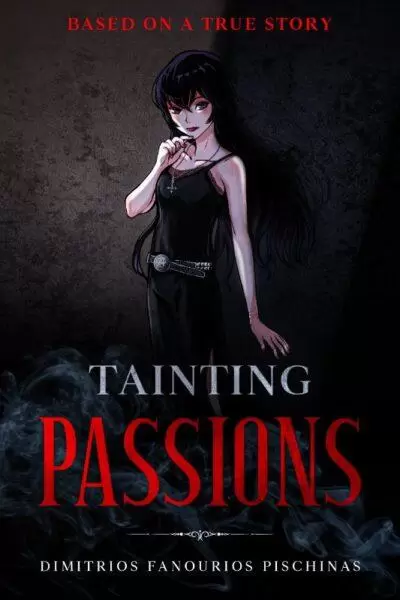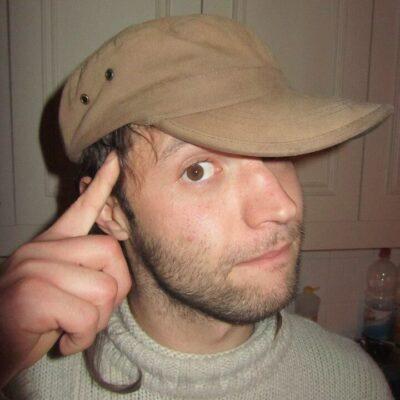Heroin addiction is often examined through journalistic exposés and memoirs, but fiction offers a uniquely immersive perspective on the experience of dependency. These novels—spanning gritty realism, poetic introspection, and harrowing confessions—plunge readers into the chaotic, self-destructive, and sometimes euphoric world of heroin use. From the nihilistic subcultures of 1980s Los Angeles to the bleak squats of Edinburgh, these books capture addiction’s psychological grip, its impact on relationships, and its broader societal implications.

Tainting Passions
Before we get into the list, I’d like to take a moment to mention my own book. This isn’t about vanity—I don’t claim it’s the best, or even among the best—but simply because, well, introducing it is the very reason I put this post together.
Tainting Passions is a dark, dramatic, edgy novel inspired by my own harrowing past in the grip of heroin addiction. It is based on the tragic real-life stories of characters I encountered in the depths of that struggle.
If you’d like to read it but don’t want to pay for it, let me know—I’ll gladly send you a PDF.
Trainspotting
Few novels portray heroin addiction with the raw intensity of Trainspotting. Written in Scottish vernacular, this chaotic and darkly humorous book follows Mark Renton and his circle of friends as they navigate the highs and devastating lows of heroin use in Edinburgh. Welsh’s fragmented structure mirrors the disorientation of addiction, while Renton’s famous “Choose Life” monologue critiques consumerist society as he rationalizes heroin as an escape from its expectations. With scenes that range from the grotesque to the strangely philosophical, Trainspotting remains a defining novel of addiction literature.

Requiem for a Dream
Selby’s devastating novel interweaves the lives of four addicts—Harry, Marion, Tyrone, and Sara—as they spiral into heroin and amphetamine dependency. The novel’s stream-of-consciousness style mimics the increasing fragmentation of their minds, culminating in one of the most harrowing descents into addiction ever put to paper. From Sara’s diet-pill obsession to Harry’s infected needle wounds, Requiem for a Dream is a relentless and nightmarish portrayal of addiction’s toll, ultimately proving that dreams can turn into nightmares with terrifying ease.

Junky
A stripped-down, almost clinical account of heroin addiction, Junky is based on Burroughs’ own experiences navigating underground drug markets in the 1950s. Unlike other addiction novels, Junky avoids moral judgment or melodrama, instead offering an unflinching, matter-of-fact look at the heroin user’s daily life—bartering for morphine syrettes, dodging police, and enduring withdrawal. Burroughs’ detached tone captures the bureaucratic banality of addiction, making this a stark but fascinating read.

Zoo Station: The Story of Christiane F.
Based on true events, Zoo Station follows Christiane F., a teenager in 1970s West Berlin who falls into heroin addiction and prostitution. Her descent from curious experimentation to full-fledged dependency is told with brutal honesty, particularly in scenes where she trades her body for a fix. The book’s unflinching portrayal of heroin use in Bahnhof Zoo—one of Berlin’s most notorious drug scenes—helped shape European harm reduction policies and remains a sobering look at how addiction preys on the young and vulnerable.

Candy: A Novel of Love and Addiction
Part love story, part heroin nightmare, Candy follows the toxic relationship between two addicts, Dan and Candy, as they spiral deeper into dependency. Davies’ poetic prose contrasts starkly with the brutal reality of withdrawal, crime, and self-destruction. Set in Sydney’s red-light districts, Candy explores how addiction corrodes love, reducing it to a series of transactions for the next fix. Beautifully written but devastatingly raw, this novel is a haunting portrayal of romance consumed by heroin.

The Basketball Diaries
Written in diary format, The Basketball Diaries captures Jim Carroll’s teenage years as a basketball prodigy turned heroin addict in 1960s New York. His entries oscillate between streetwise bravado and vulnerability, detailing his slow descent into crime, homelessness, and addiction. The book’s raw authenticity made it a cultural touchstone, particularly in the 1990s grunge era, and its unfiltered honesty still resonates today.

Less Than Zero
Ellis’ minimalist, detached prose perfectly mirrors the emotional emptiness of Clay, a privileged college student drifting through Los Angeles’ drug-fueled youth culture. Heroin use in Less Than Zero is depicted not as rebellion, but as an extension of wealth-induced boredom, with characters so numbed by material excess that addiction feels inevitable. Julian’s tragic arc, as he spirals into debt-driven prostitution, offers one of the book’s few glimpses of genuine despair amid the apathy. A haunting critique of Reagan-era materialism, Less Than Zero remains disturbingly relevant.

Junk
A controversial YA novel that refuses to moralize, Junk tells the story of Tar and Gemma, two British teens who go from glue-sniffing to heroin dependency. Told through multiple perspectives, the novel doesn’t shy away from addiction’s grim realities—Tar’s transition from dealer to user, Gemma’s manipulation of addicts for drugs, and the self-destructive culture of squats and communes. Burgess captures the seductive, all-consuming nature of heroin while showing how addiction often begins not with a single choice, but with a series of small, seemingly inevitable steps.

No Longer Human
While not explicitly about heroin, No Longer Human explores addiction as a metaphor for existential alienation. Yozo Oba, the novel’s protagonist, numbs himself with alcohol and morphine, unable to connect with society in any meaningful way. Dazai’s haunting prose captures the sensation of being permanently out of step with the world, and the novel’s themes of self-destruction resonate deeply, particularly given the author’s own tragic end.

Transcendent Kingdom
A deeply introspective novel, Transcendent Kingdom follows Gifty, a neuroscience researcher grappling with the death of her brother Nana, who overdosed on heroin after becoming addicted to prescription opioids. As Gifty studies the brain’s reward pathways, she questions whether addiction is a matter of choice, destiny, or biology. Gyasi’s novel stands apart for its scientific approach to addiction, exploring its intersections with race, religion, and mental health.


